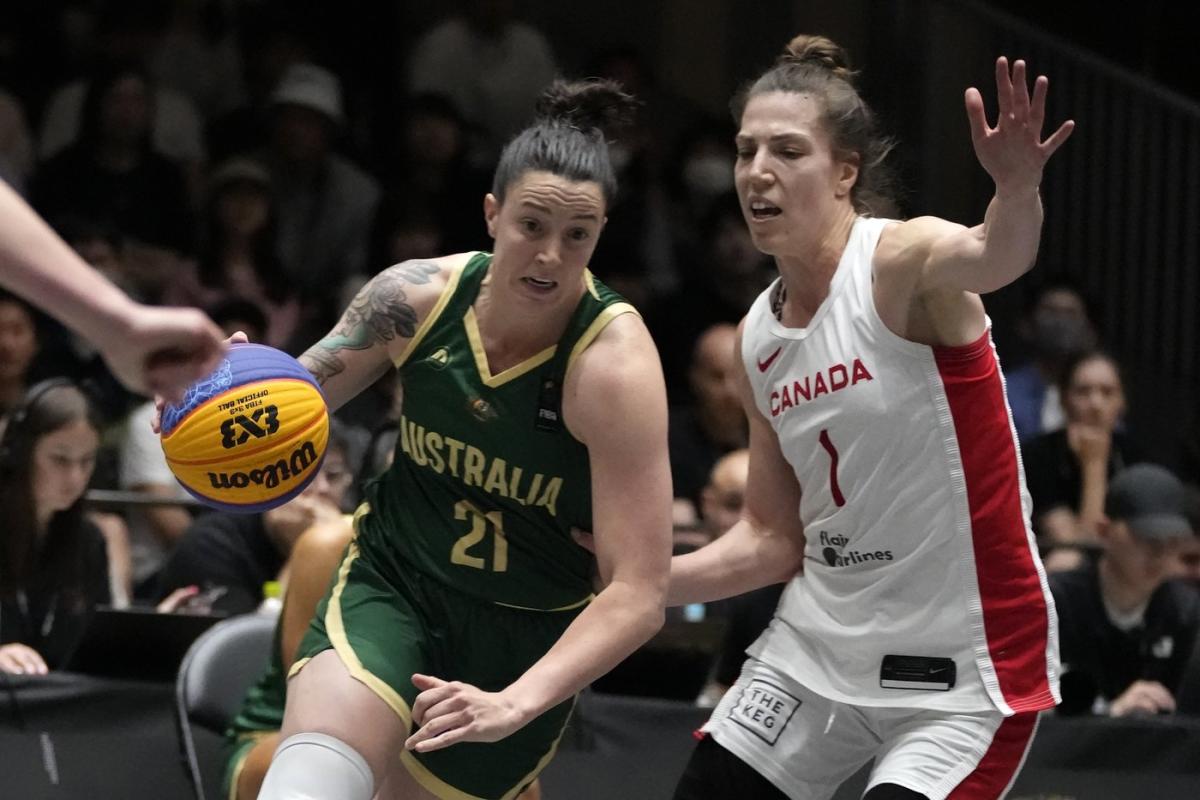Basketball
Building Canada’s 3×3 basketball squad into Olympic contenders a labour of love

Getting to the Paris Olympics has been a humbling experience for Katherine and Michelle Plouffe.
The twin sisters not only put sweat into the journey, but their own money and countless hours as they built Canada’s three-on-three basketball program from the ground up.
Now they’re part of the first Canadian team to play three-on-three on the Olympic stage.
“I think it needed to start somewhere. It’s been very humbling to see how people have bought in,” Michelle Plouffe said.
“It was definitely a hands-on experience, wearing many different hats with the behind-the-scenes stuff.”
Hailing from Edmonton, the 31-year-old Plouffe sisters are both veterans of Canada’s women’s basketball team, and were on the squad that finished seventh at the 2016 Rio Olympics. Michelle also played at the London Games in 2012.
The duo decided to make the jump to three-on-three basketball back in 2019 before the sport made its Olympic debut in Tokyo. Michelle had friends playing on the men’s world tour and thought the smaller game would suit her playing style.
“It just looked like a lot of fun,” she said. “It looked really freeing. You could be creative, make things happen on your own.”
Three-on-three is played on half court, with both teams shooting on the same net. Shots from outside the arc are worth two points, while buckets made from inside count for one. The winner is the team that has the most points at the end of 10 minutes, or whoever gets to 21 points first.
A DJ plays music throughout the game.
“The slogan is from the streets to the Olympics and that’s how it feels,” said Team Canada’s Paige Crozon. “It feels like I’m playing on the streets with my best friends. But now it’s just on the Olympic stage, which is amazing.”
Canada didn’t have a national three-on-three program back in 2019, so the Plouffes built one themselves. They recruited players — including Crozon — booked tournaments and funded their own trips and training.
“It took us to kind of blaze the trail a little bit,” Katherine said. “But I’m glad that people know now about three-on-three, that there’s a program being developed, not just for ourselves, but for whoever comes after us. And there’ll be more opportunity for women to play in the future.”
Crozon linked up with the Plouffe sisters when she was looking for a team that would have space for both her and her infant daughter, Poppy.
Now five, Poppy has become part of the squad, Crozon said.
“It’s incredible to share this experience with her. It’s been my childhood dream to be an Olympian. However, I never envisioned doing it with my daughter,” said the 30-year-old native of Humboldt, Sask.
“She’s just enhanced everything that we’ve done. I’m so proud to share this experience with her. She’s just provided so much perspective and so much grounding, having her there.”
Kacie Bosch, a 27-year-old from Lethbridge, Alta., rounds out Canada’s team in Paris.
Bosch turned down the opportunity to play for the team multiple times before finally joining the squad for the first-ever three-on-three FIBA AmeriCup in 2021.
Canada placed third in the tournament and went on to win in 2022. The team has since continued to post big results in international play, including a third-place finish at an Olympic-qualifying tournament back in May.
The Canadians also dominate the top of FIBA’s three-on-three individual world rankings, with Katherine Plouffe sitting in first, followed by Crozon and Michelle Plouffe.
“To be a part of this team now with the three that I’m with, who are really the pioneers of three-on-three in Canada … it’s so cool to be part of their journey and see the foundation that they’ve laid and be a part of that,” Bosch said.
“To be on the first (Olympic) team with the three best players in the world, it’s unreal. Who else gets to experience what I’m experiencing right now? Nobody.”
Eight teams are set to face off in the women’s three-on-three basketball competition in Paris, including the defending champion Americans, Germany, Australia, Spain, Azerbaijan, France and China.
All of the best teams in the sport have qualified, Bosch said, setting the stage for a competitive tournament.
“It’s going to be a grind. You can’t take any games off,” she said. “There’s such a big reward to finish top two, because you automatically go to the semifinals. So everybody’s going to be out for blood. It’ll be electric, for sure.”
Each team will play all seven of the others in pool play, starting on July 30. The medal games go on Aug. 5.
This report by The Canadian Press was first published July 29, 2024.
Gemma Karstens-Smith, The Canadian Press








